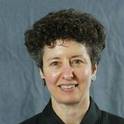| Present | Associate Professor of Electrical Engineering and Music, Olin College of Engineering | |
|
|
||
| Present | Music Program Director, Olin College of Engineering | |
|
|
||
Disciplines
Research Interests
Courses
- Olin Conductorless Orchestra
- Digital Signal Processing
- Wired Ensemble
